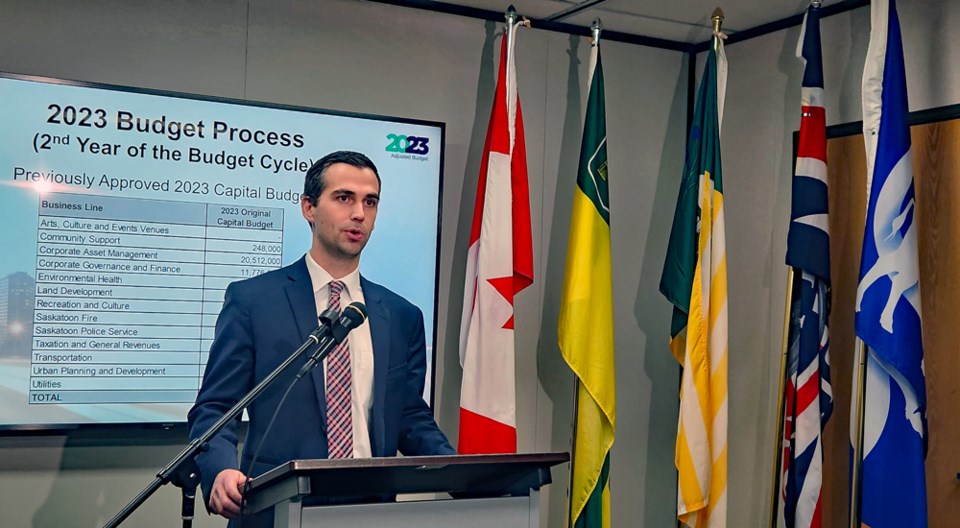SASKATOON — Housing and addressing road issues were among the critical investments of the City of Saskatoon for its 2023 budget passed by city council in late November.
Mayor Charlie Clark, in a statement, said the city is making significant investments to help address the rising homelessness crisis and the growing need for affordable housing.
“City council has allocated funds to work with housing providers to build more units and to increase our capacity to work strategically with our community partners on coordinated housing solutions and extreme weather strategies,” said Clark.
The city put in a $100,000 increase and one-time funding of $550,000 for its Attainable Housing Program, which came from the city’s Neighbourhood Land Development Fund dividends.
The city has also allocated $245,000 as additional funding to develop a housing strategy that includes housing needs assessment, best practices review and engagement.
The city invests a budget of $35.25 million for 2023 to address the conditions of roads and sidewalks, which is a three per cent increase from this year.
Other critical investments on the budget are for snow clearing and removal and having four additional full-time positions for Saskatoon Transit.
The city set aside a budget of $14.92 million for snow clearing and removal, a two per cent increase from last year.
The four additional full-time staff at Saskatoon Transit will reduce its service disruptions and increase the reliability of its bus communications.
In addition, the Saskatoon Police Service will be able to hire six alternative response officers to aid people in vulnerable states and help them get the support they need.
Despite the city facing a $10 million increase in costs inflation, it also found $7 million in savings for 2022 and projected another $7 million in savings for 2023.
Snow and ice management, rising natural gas and fuel prices, and lower revenues generated from leisure centres and landfills were also part of the city’s $10 million cost increase.
Clark said savings and other transfers in reserves during the budget deliberations also brought down the 2023 property increase of 4.38 percent to 3.93 per cent.
“Every year, the city council deliberates the budget to bring in the lowest property tax rate, especially when we know times are tight for everyone,” said Clark.
“We continue to recover from the challenges brought on by the pandemic and are now facing some of the highest inflationary pressures in generations.”
He added that the strategic budget balances the city’s needs as prudent as possible, ensuring his administration provides the core services the residents need.
The 3.93 municipal property tax increase for next year is expected to cost $6.53 per month or $78.34 in a year for a family that owns a single-detached home valued at $344,000.
The city council also transferred $1.64 million from the reserve for capital expenditures to the fiscal stabilization reserve and made adjustments to help lower the property tax rate.


